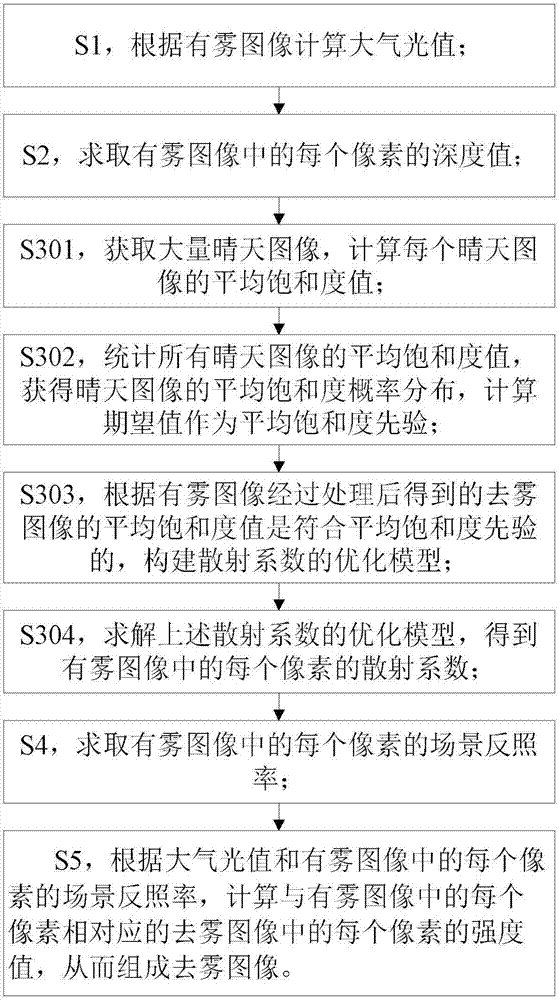Image de-fogging method based on average saturation priori treatment
A saturation and image technology, applied in image enhancement, image analysis, image data processing, etc., can solve the problems of lack of accuracy, inability to deal with foggy images in non-homogeneous atmosphere, achieve good dehazing effect and solve uncertainties Effects of Sexual Problems
- Summary
- Abstract
- Description
- Claims
- Application Information
AI Technical Summary
Problems solved by technology
Method used
Image
Examples
Embodiment Construction
[0036] The present invention proposes an image defogging method based on the average saturation prior, such as figure 1 shown, including the following steps:
[0037] S1, calculate the atmospheric light value based on the foggy image, including:
[0038] S101. Find the minimum intensity value in the R channel, G channel and B channel of each pixel of the foggy image to obtain the minimum channel image, and then set multiple windows centered on each pixel, and perform minimum on each window value filtering to obtain a dark channel image.
[0039] Specifically, the minimum intensity value corresponding to each pixel in the hazy image is found according to the following equation to form a dark channel image:
[0040]
[0041] Where Ω(x, y) represents a local pixel block centered on any pixel (x, y) in the foggy image, preferably the size of the local pixel block is 15×15, I c (a,b) represents the intensity value of any pixel (a,b) in the local pixel block Ω(x,y), I dark (...
PUM
 Login to View More
Login to View More Abstract
Description
Claims
Application Information
 Login to View More
Login to View More - R&D
- Intellectual Property
- Life Sciences
- Materials
- Tech Scout
- Unparalleled Data Quality
- Higher Quality Content
- 60% Fewer Hallucinations
Browse by: Latest US Patents, China's latest patents, Technical Efficacy Thesaurus, Application Domain, Technology Topic, Popular Technical Reports.
© 2025 PatSnap. All rights reserved.Legal|Privacy policy|Modern Slavery Act Transparency Statement|Sitemap|About US| Contact US: help@patsnap.com



